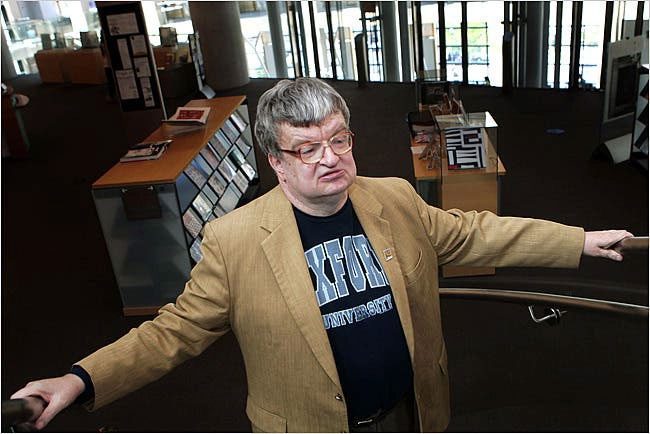Despite being 4 years old and unable to walk or button his shirt due to a brain impairment, Kim Peek possessed extraordinary memory capabilities, recalling the content of 12,000 books in detail and answering nearly any question across 15 different fields.
Kim Peek (1951-2009) is known as a prodigy with an exceptional memory. He is often referred to as a “super genius” or “walking encyclopedia.” While he had extraordinary memorization skills, Kim faced challenges in daily activities due to his brain impairment. He was diagnosed with Savant Syndrome, a rare condition where individuals have remarkable abilities in specific areas but often experience psychological deficits or developmental disorders.
Kim Peek was the inspiration for the character Raymond Babbitt—a man with autism and extraordinary memory in the movie Rain Man, portrayed by Dustin Hoffman. Kim Peek’s life and remarkable mind inspired playwright Barry Morrow to create this cinematic masterpiece. With its profound message aiming to raise awareness about autism and other disabilities, the film won four prestigious Academy Awards.

Kim Peek. (Photo: The New York Times).
Extraordinary Abilities and Memory
Born and raised in Salt Lake City, Utah (USA), Kim Peek exhibited remarkable memorization skills from a young age. His father, Fran Peek, shared that at just 16 months old, Kim began reading books as if he had been literate for a long time and could recall what his parents had said. By the age of 4, he could recite the entire telephone directory.
On Christmas Eve of his 10th year, Kim astonished his family with his miraculous memory. At just 10 years old, he read the entire Christmas story in the Bible, memorizing every word. By 14, Kim had completed the entire high school curriculum. At 18, he was hired to calculate payroll for 160 employees. Without a computer, he managed to calculate the total wages owed. However, about 10 years later, he lost his job as payroll processing became automated.

Kim Peek can remember almost 98% of the content in the books he reads. (Photo: Getty Images).
Kim could remember nearly all details, retaining about 98% of the content from the books he read. He recalled the content of at least 12,000 books. Remarkably, this “super genius” could read two pages simultaneously, using his left eye for the left page and his right eye for the right page.
Moreover, he memorized everything from highways connecting cities and towns in the USA to area codes, post offices, radio stations, telephone networks, and local train schedules. This genius could remember almost everything he read, equivalent to the volume of books filling 190 large cardboard boxes.
He was also an expert, able to answer almost any question across 15 different fields, including geography, music, history, and sports.
In 2004, scientists from NASA invited Kim Peek to their laboratory to study his extraordinary brain. Alongside specialists from Salinas Valley Memorial Hospital in California, NASA employed state-of-the-art MRI technology and the latest advancements in the aerospace industry to obtain three-dimensional images of Kim’s unique brain.
The goal of NASA was to understand what occurs in the brain when Peek speaks and thinks. Simultaneously, they sought to learn how the brain operates for practical applications. Throughout this research process, Dr. Richard Boyle from NASA stated: “All I can say is that Kim is unlike any other savant. This is a unique case.”

Kim Peek can answer nearly any question in 15 different fields. (Photo: Getty Images).
Challenges in Daily Life
Due to congenital disabilities, this brilliant individual’s daily activities and communication faced significant difficulties. When Kim Peek was born, doctors diagnosed him with the possibility of never walking or speaking, advising his family to send him to a center for disabled children. According to Kim’s father, despite the doctor’s words, he and his wife were unwavering in their determination to care for their son themselves.

He struggled to understand abstract language in literature. (Photo: Getty Images).
Kim was unable to walk until he was over 4 years old. At 6, due to his incessant talking and hyperactivity, he underwent brain surgery to manage this condition. During elementary school, he was expelled for not being able to concentrate for more than 7 minutes in class. Consequently, his family arranged for a teacher to provide home instruction twice a week.
Having been diagnosed with autism from a young age, Kim Peek was unable to care for himself and depended on his father for daily activities. He could not button his shirt without assistance. Although he could remember vast amounts of knowledge, he struggled to understand abstract terms in literature. In 2009, Kim Peek suddenly passed away from a heart attack at the age of 58.


















































